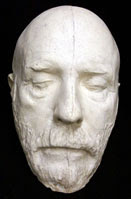We have been following Peter Charles Hoffer around the periphery of his new book,
Past Imperfect.
He makes these interesting remarks on
Stephen B. Oates, author of the pop culture Lincoln bio
With Malice Toward None:
... the fact remained that , so long as it occurred in the context of popular history. ...consensus, wearing the garb of popular history, had proven itself to be armored against the integrity code and its would-be enforcers. Leap across the chasm from the academic to the popular and no committee of inquiry would dare follow. And a number of professional historians were making the leap.
He delineates those readymade anti-plagiarism arguments in his book, of course. As readers, the key thing is to know that the pop historian can, like Oates, consider himself plagiarism proof by dint of doing pop history.
Hoffer portrays the American Historical Association (AHA) as having
experimented with standards enforcement for 15 years only to suffer embarassment in a public fight with Oates and his defenders, among them James McPherson and McPherson's patron, C. Vann Woodward. (McPherson's defense of plagiarists forms a pattern.) AHA's decision to get out of the ethics business was partly motivated by embarassment caused it by Oates' defenders.
In describing the
Bellesiles affair, Hoffer has cooled a little on the idea of AHA as victim. AHA's defense of Bellesiles, which outraged me, he criticizes measuredly: "[when] the AHA rushed to his side and stated principled objections to the politicization of history, they hesitated to ask the equally important question of whether he had manipulated them and betrayed their trust."
But back to the ethical challenges in doing pop history. Hoffer gives this notable quote from the famous biographer
Doris Kearns Goodwin, from an interview given before her transgressions were uncovered:
I think my integrity depends on not stretching over that line that separates nonfiction from fiction, as too many nonfiction writers are doing nowadays.
[My emphasis - DR]
Anyone who doubts the central idea of this blog - that Civil War history as a discipline is broken - would do well to read her words again. If Goodwin herself is warning readers against the misdeeds of her historian colleagues ("too many" of them) there is an elephant in the room of trade nonfiction.
Someone recently pressed upon me his enduring good feelings toward Stephen Ambrose. I offer this bit of relevant analysis by Hoffer :
But Ambrose's technique was to remove a few terms, move around others, and copy the rest from Childers, then put quotation marks only around the primary source taken from Childers. The changed words and phrases are the telltale marks of an intent to borrow illicitly, proof of a pattern of unethical conduct.
Hoffer says he was spurred to write this book in response of the AHA's decision to stop hearing malpractice charges; he calls for professionals in history organizations to show some righteous indignation against misconduct.
He's looking at the problem through a rear-view mirror. The trick at this turn in the road is not
about standards and enforcement; that was valid up until the day Woodward and McPherson turned against their own organization, the AHA, to defend Oates. Once McPherson then gained the presidency of the AHA, once he showed himself as ready to defend Goodwin and Bellesiles as he had been to defend Oates, the game changed. We are now at the point of having to stop organizations like the AHA from giving cover to the ethical violations of its members. That's a new itinerary.
Hoffer understood this early in his book in writing about Oates: "Oates's logic could shield any ethical misconduct..." But he forgot it by the time he reached the last page of the book. His analysis is interesting; his conclusion misses the point.
In the meanwhile, we can
entertain ourselves watching historians smokescreen the miscreants with little PR projects:
It makes sense for the Organization of American Historians to ask the editorial board of the Journal of American History to commission an essay or a roundtable to address "the ethical issues of this and other recent cases and how much historians rely on trust in practicing their craft."
Wouldn't that be just terribly impressive?



